Chapter 20 - Challenges
Jim Baird is one of my heroes. Jim is an outdoorsman from Canada. He has a YouTube channel called “Jim Baird – Adventurer”. He looks like an out of shape, 40’s something guy who could be your neighbor and goes on the most mindboggling backwoods adventures you could imagine. Sometimes he goes solo, sometimes with brother Ted and sometimes with groups of other YouTube celebrities. He and his brother won an early season of “Alone”, the History Channel reality show that puts contestants deep into the backcountry with a minimum of tools to see how long they can survive before “tapping out”. He is the outdoorsman’s, outdoorsman. But that’s not why he’s, my hero.
Jim and his wife Tori have two young sons. The oldest – Wesley has Fox G1 Syndrome which makes him profoundly special needs. And yet, they travel as a family across Canada. They go on extended canoe trips deep to the interior. They camp, they stay in remote cabins, they travel with overland campers and Wesley goes with them all the way. They paddle, they snowmobile, they portage, they hike – all while exposing their son to all the joys of spending time outdoors.
I know some of the challenges they face. When I graduated from the University of Minnesota in 1977 with a degree in Physical Education, one of my certifications was in Adapted PE. In addition to extra coursework, I had to spend time student teaching in an adapted setting. For two years I taught the adapted class at Ely Public Schools. During the summer of 1980, I worked at Camp Courage near Annandale, Minnesota. My title was “Waterfront Ken”, and my duties included lifeguarding, teaching swimming lessons, maintaining the canoes, small sailboats, motorboats and pontoons. I would bring campers to specific shoreline spots along Cedar Lake to fish for bluegills and sunnies. And, to take groups of hearing-impaired kids on overnight canoe trips on the Mississippi River. My assignments were relatively short-term. The challenges great but not insurmountable. It takes unique people like Jim and Tori to be able to provide the care and understanding needed for their son’s well-being and give him a fulfilled existence day in and day out.
I’ve had my share of trips into the BWCA with friends and clients who had special needs. Some temporary, such as broken bones, ankle sprains, residual effects from recent illnesses or surgeries as well as some recovering from emotional upsets from family problems to deaths in the family. Many are more long term. Diabetes, heart or blood pressure problems, bouts of vertigo, congenital conditions such as hip dysplasia, hearing loss and visual loss, dietary needs involving low-salt diets and gluten intolerance, seizures and epilepsy as well as allergies that can range from discomfort to anaphylactic shock. Being aware of what problems may arise and having a plan for dealing with the expected/unexpected situations is a must. Knowledge of how to deal with diabetic emergencies or how to use an epi-pen may come in very handy.
Fortunately, in this day and age we have some tools to help us that were unavailable not that many years ago. Communication has taken giant leaps. Satellite phones and other satellite communicators such as In-Reach or Spot let us summon help for resources in a matter of hours that in the past might be days away. Cell phone coverage, though a controversial subject, has extended to many corners of the Boundary Waters and satellite communication through our cell phones sounds like it might be only months away.
A few years ago, I was on a trip with some friends when one started
to have some troubling heart symptoms. We were able to reach his doctor on my In-Reach and get the info needed to decide whether to continue our trip or scoot back to civilization. Great stuff!
I’m going to finish this essay by talking about two groups in particular. Though you might not consider these to be “special needs” people in the strictest sense, they certainly are. The first involves young children.
I am often asked how young you can bring a child on a trip into the back country. Whew! That’s a tough one. Physically, I suppose you could bring one who is only a couple of months old. Emotionally – and I’m not only talking about the children – some might not be ready until the child is in their teens. I was doing a solo trip in the Quetico one year when I came across a family with mom and dad and two kids. The older child was about six or seven, the younger less than a year. The baby was not yet walking and still in diapers. They had been out for almost two weeks and told me I was the first person they had seen in eight days. Everyone seemed healthy and happy. Certainly, these parents had a good idea of what it took to take care of their “special needs” passenger. On the other end of the spectrum, I once had a fourteen- year-old girl in a party who wouldn’t paddle, barely came out of her tent while in camp, wouldn’t eat and cried incessantly because she couldn’t reach her friends on her cell phone. She had a miserable trip as did her sibling and parents.
Young children have needs that adults don’t. Diet, rest considerations, length of travel days – both in terms of time and distance, entertainment and safety all demand patience and expertise to navigate during a trip into the BWCA. Understanding and having a plan of action – as well as a list of alternatives – is mandatory for a trip to be successful. Those skills are necessary for any youngster. Throw the possibility of individual health issues into the mix and it can be a daunting task.
My canoe trips with the hearing impaired were a real eye-opener. Trips involved either three or four canoes and I had to develop strategies of communication that transgressed being able to hear. I would have one assistant on those trips, and I would put them in the front canoe. I could yell to them, and they could stop and let those in between know when to stop, which side of the river to paddle and when to gather into a small group with signals of paddles lifted into the air vertically or horizontally. I would get the attention of the paddler in the front of my canoe by tossing water from my paddle onto their back. They could get our attention by banging their paddles on the aluminum gunnels of the canoe. Once in camp, chores would be divided up with gestures and by example. I had taken some night classes to learn ASL, but my skills didn’t progress much past the basics, let alone to an expert level. Sight games were played, skills taught by example and an hourly check of each tent at night was a necessity.
Each special need demands a new skill set.
The second set of special needs people I will talk about is what I affectionately call “old folks”. As I am 71 and will soon be reaching this age group, I am finding firsthand some of the considerations and limitations of this class in our population. To be honest, some are similar to the youngsters. Diet, rest considerations, length of travel days all come into play. But there are other factors that now become apparent. Strength, balance, visual acuity, hearing, forgetfulness, change in bodily functions and attentiveness can all be of concern. Long term health issues become an issue. Decades of wear and tear on joints takes its toll. Injuries long ago from accidents and being active show up when paddling, throwing a canoe or sleeping on the ground. Sitting all day can be tiring. Exposure to the elements – especially sun – can have an impact. Daily medications are as important, if not more so, as food itself. Falls that when young might mean a bruised ego, now can be a serious health concern.
Long term health issues that have been under control can suddenly flare up. Heart attacks, strokes, clots, diabetes, even alcoholism can suddenly make a pleasant trip into a fight for survival. Early stages of Alzheimer’s can be present, and you might not even realize it.
Back in the eighties, I had a few clients who had been soldiers in WWII, Korea or even Vietnam. I had a tank commander whose tank was blown up during the Battle of the Bulge and still had shrapnel in his body as well as several metal plates and screws holding him together. I never knowingly had to deal with PTSD while out camping but did know some while in college and soon after. I can’t imagine what having a severe episode of that while deep in the back country might look like.
I write this chapter not to discourage people from visiting the back country. Quite the opposite. The young, the elderly, and the special populations gain as much or more by spending time in the wilderness. There is a serenity, an experience, indeed a sense of purpose by all these special populations visiting wild places. For those who have the patience, the love and expertise to help these individuals enjoy the wonder of nature in a natural setting, I have a place in my heart. It is challenging. But it is worth the effort.
Fortunately, there are several organizations and facilities in our area to also carry on this important work. Veteran’s on the Lake, Cast Outdoor Adventures, Northern Tier and the Guide Auction at Zup’s Resort on Lac La Croix, North of North Resort on Birch Lake, and the Boundary Waters Sled Hockey Combine as an annual event that was recently held. I’m sure there are others and if so, please contact me to let me know and I’ll pass on the information!
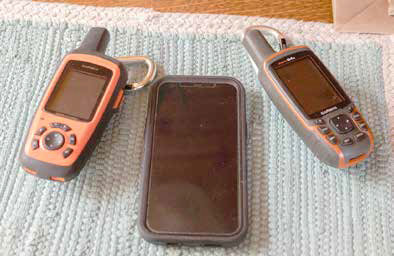
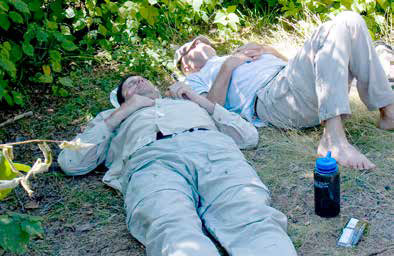
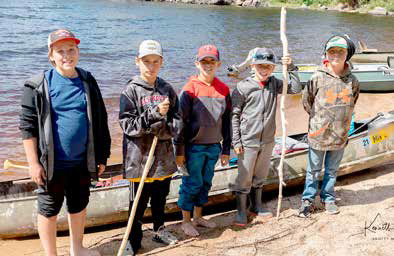
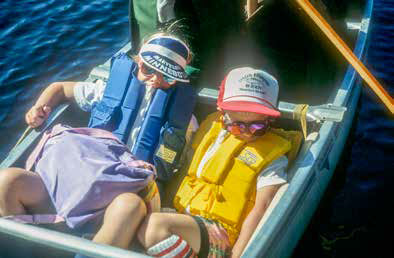
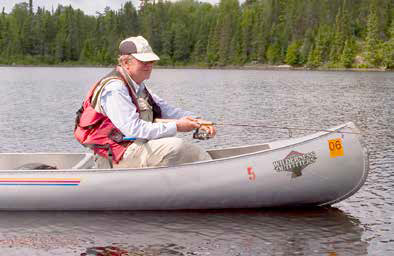
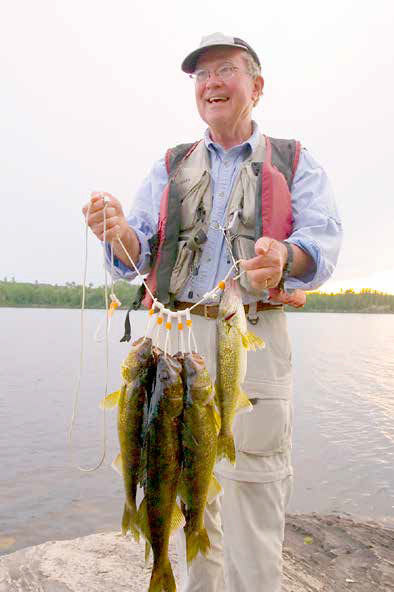
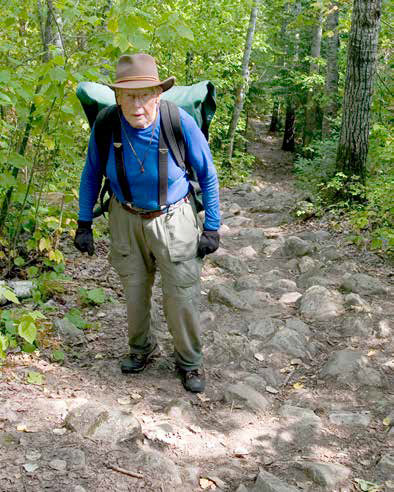
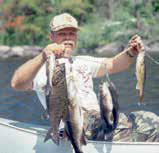
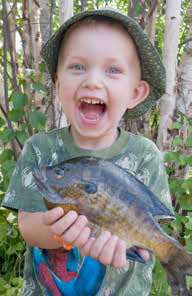
.jpg)









